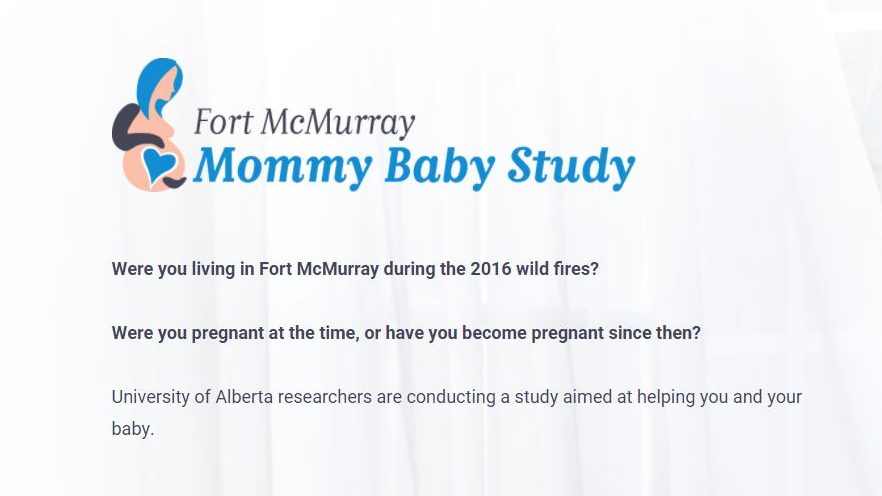Preliminary results of a study of pregnant women during the 2016 wildfire are revealing that many are experiencing high levels of stress.
Evidence from Dr. Suzanne King of McGill University of pregnant women going through natural disasters inspired Dr. David Olson to do a study on pregnant women who were evacuated after the Fort McMurray wildfire.
From the studies, it was found that women tended to have slightly shorter pregnancies, children at risk for neurocognitive delays and neurological development delays, and a metabolic syndrome, which can lead to obesity, type 2 diabetes and high blood pressure.
“After a woman enrolls we ask the women to take questionnaires which tells us about their stress, their anxiety and their depression levels. From that baseline data we learn that the women of Fort McMurray are really highly stressed and depressed and more so than women in other studies that have been done in Canada, the United States and Australia following a natural disaster,” said Olson.
Dr. Olson’s study consists of two different test groups.
The first group of women are required to write in a journal 15 minutes a day for four days, about their inner most feelings about the fire.
The second group of women will not write.
Dr. Olson said the first group of women write to decrease stress, while the second do not write to build self-resilience.
Both groups will receive benefits from the study, as the non-writing groups will experience a placebo effect.
Babies of mothers who participate will also get two years of free developmental and health assessments. They will track their weight, if they develop diabetes, blood pressure, behaviors, neurological and cognitive development.
“When we heard in May of last year about the fire we really wanted to do something more for the women and the children of Fort McMurray other than just follow the progress of their development,” said Olson. “We actually wanted to develop an intervention or means to mitigate the risks and improve outcomes.”
Long term and continuing consequences of the wildfire include women being worried of contamination and unsafe water, loss of houses, hassles with insurance companies and the rebuild itself. Dr. Olson noted that beside the wildfire itself, there could be a number of additional stressors in the Fort McMurray area, like the economic downturn.
The first babies that were born from women, who were pregnant during the fire, are going to be 18 months old and Dr. Olson said that he is going to perform some routine developmental tests. From those tests, they will begin to learn more on whether if the intervention helped the babies to develop normally.
Any women who is pregnant now or is thinking about become pregnant and wishes to participate in the study can enroll online.
Postpartum women could still enter the study because Dr. Olson believes the interventions help women become better mothers and this improves the long-term development of their babies.







